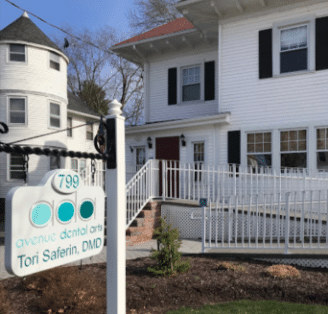When it comes to establishing and maintaining good oral health, one of the most unnerving things we have to deal with is the fact that we only have one set of permanent teeth throughout the majority of our life, and they seem to grow weaker as we age. We may feel that we will inevitably have to receive dental implants at some point in our adult life, and we try desperately to push that point back as far as we possibly can. In actual fact, our natural adult teeth can stand the test of time–provided we understand how their needs change as we age, and consistently provide them with proper care.
Aging and Oral Health
You may have heard many times that your overall health affects your oral health. This tends to be increasingly apparent as we age and our bodies change more markedly. For example, reduced mobility can make it difficult to properly maneuver a toothbrush and floss, which in turn reduces the beneficial effects one achieves in brushing and flossing. Illness can cause us to avoid the foods that are most nutritious for our bodies and our teeth, which in turn can weaken our bodies and teeth and drive us to consume more and more soft foods that are devoid of the essential and appropriate nutrients. Tooth enamel tends to wear thinner and thinner over time, making teeth more likely to break or experience decay. Unfortunately, the normal reduction in nerve sensitivity that occurs as we age means we may be oblivious to problems we have in our mouth, and these problems exacerbate the longer they go undetected.
As a result of these and other things, some of the more common oral health issues that can arise as we age include:
- Xerostomia. This is a drying of the mouth, which is dangerous to our oral health since our saliva is important to fight harmful oral bacteria. It is also an uncomfortable condition, and can lead to other oral and general health issues if left untreated. Unfortunately, xerostomia is a common side effect for many medications.
- Periodontal disease. Infections around the teeth, like gingivitis, tend to develop as a result of poor oral hygiene habits. When bacteria and food particles are permitted to remain in between teeth and around the gums, they can create periodontal disease issues.
- Edentulism. This is often the most highly-dreaded oral problem: tooth loss. Edentulism is not only emotionally difficult to cope with, it can contribute to nutrition problems as it prevents proper chewing of nutritious foods.
- Oral cancer. Twice-yearly dental examinations serve many useful purposes, not the least of which is early detection of precancerous or cancerous cells in the mouth. There are many different types of oral cancer, and many can be successfully treated if caught early.
Changing the Trend
As mentioned earlier, one does not simply have to sit back and wait for their permanent teeth to become weak as a result of aging. Through a healthy diet and preventative dentistry, you can maintain good oral health even as you age. Following are some of the most basic actions you need to take:
- Brush your teeth properly, twice a day. Brushing your teeth twice a day is an important part of removing leftover food particles and harmful oral bacteria. However, it is important to brush your teeth properly, because brushing incorrectly (like too roughly) can cause more harm than it helps. If you aren’t sure how to brush properly, or which toothbrush or toothpaste is best, check with your dentist.
- Floss your teeth properly, once a day. Flossing finishes the job that brushing begins by eliminating any leftover food particles and harmful oral bacteria that lodges between your teeth and along your gum line. Again, check with your dentist on proper flossing procedure if you’re uncertain.
- Use a fluoride mouthwash. Fluoride mouthwashes can further eliminate food particles and harmful oral bacteria. It can also serve to protect and strengthen your tooth enamel.
- Visit your dentist at least twice a year. Your dentist is able to detect oral health issues just as they are beginning, which can allow for easier, faster resolutions. She is also able to clean your teeth more thoroughly and deeply than you can at home, using special dental tools and techniques.
- Establish and maintain a healthy diet. The nutrients that are essential to a healthy body are also essential to a healthy mouth. If you feel that you cannot eat a healthy diet for any reason, such as difficulty chewing or lack of interest in healthy foods, contact your physician or dentist as soon as possible.
- Drink plenty of water. Water is essential to a healthy mouth and body, and helps to keep your natural saliva production at ideal levels.
Aging does not have to mean that one’s body grows weaker and less attractive. It does not mean that one will lose their natural teeth and be forced to cope with dental implants. One can age gracefully, and maintain strong, healthy teeth all the while. For more information about how to maintain your oral health as you age, contact Dr. Saferin today.


